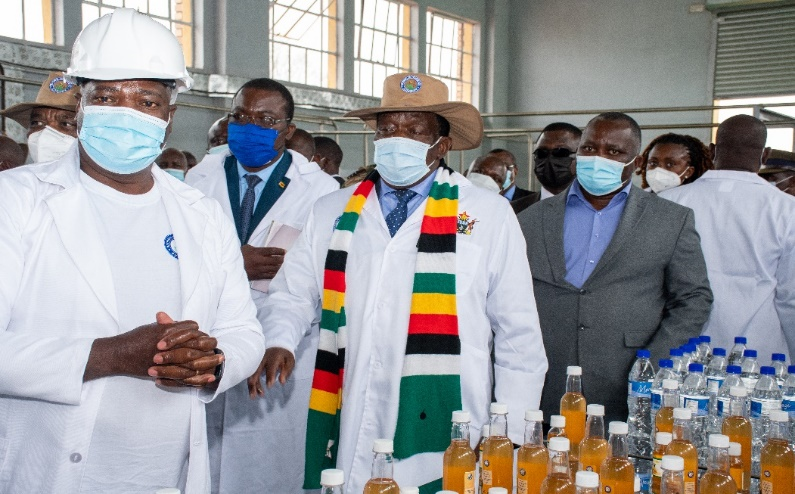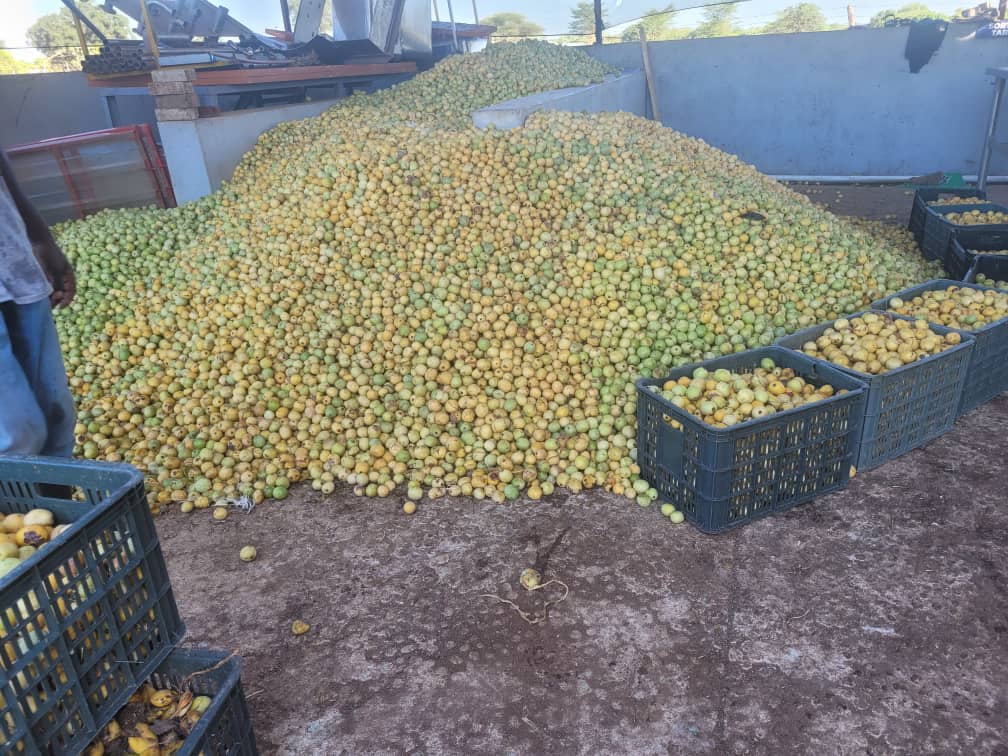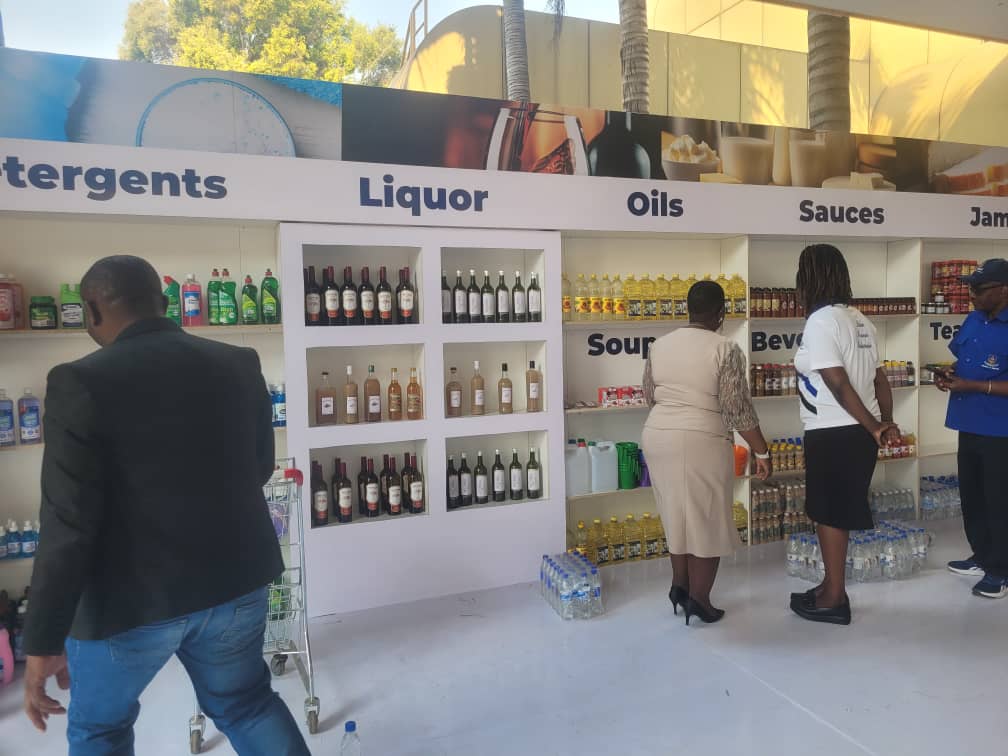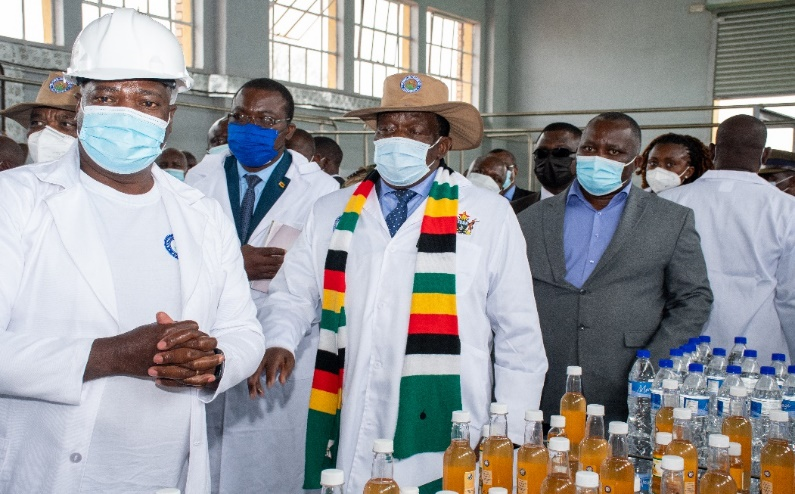Initial Planning
Early 2021: Conceptualization and feasibility studies for the Mapfura Plant
The National Biotechnology Authority celebrated the official launch of the Mwenezi Mapfura/Marula Plant in October 2021, presided over by His Excellency, President Dr. E.D Mnangagwa. This landmark event marked a significant advancement in Zimbabwe's biotechnology sector, focusing on value addition to indigenous resources.
Mapfura (known as marula in many parts of Africa) has long been a traditional resource for the Shona people of Zimbabwe, who use it to prepare mukumbi, a traditional wine :cite[4]. This plant represents the intersection of traditional knowledge and modern biotechnology.

President Mnangagwa inaugurating the plant

Collecting ripe mapfura fruits from local sources

Initial processing of mapfura fruits

Traditional fermentation techniques

Ensuring product safety and standards

Preparing the final product for market

Final packaging of mapfura products

Showcasing the finished mapfura wine

Preparing products for market distribution

Community celebration of the successful launch
Mapfura (Sclerocarya birrea subspecies caffra) holds both cultural importance as a traditional resource and scientific value as the basis for innovative biotechnology applications. Research has shown that fermented mapfura juice (mukumbi) has antimicrobial properties that make it safe from contamination by pathogens like Salmonella and Shigella :cite[4].
The establishment of the Mapfura Plant represents how traditional knowledge can be enhanced through biotechnology to create sustainable economic opportunities while preserving cultural heritage.
Early 2021: Conceptualization and feasibility studies for the Mapfura Plant
Mid 2021: Construction and setup of processing facilities
October 2021: Presidential inauguration of the plant
Late 2021: Commencement of full-scale processing operations
Early 2022: First batches of commercial Mapfura products
The Mapfura Plant launch represents a significant milestone in Zimbabwe's biotechnology sector, creating new economic opportunities for local communities while adding value to indigenous resources. The project demonstrates how traditional knowledge and modern science can work together to create sustainable development.
Future plans include expanding product lines, exploring export markets, and continuing research into the nutritional and medicinal properties of mapfura-based products.